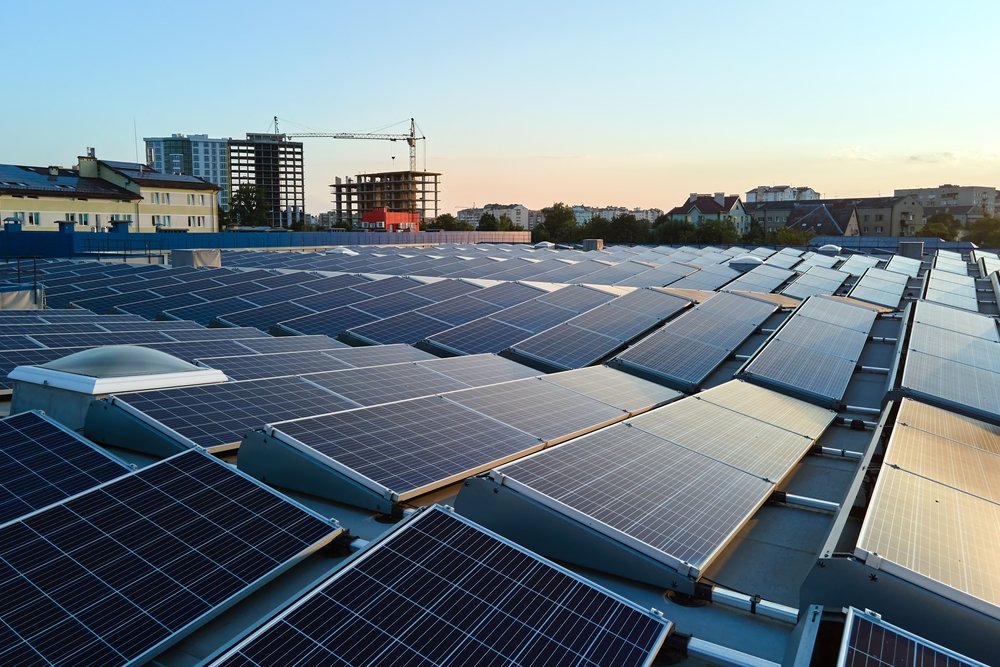Solar power significantly contributes to sustainable development in various ways. Here’s a detailed overview of its impact:
Environmental Benefits
Reduction in Greenhouse Gas Emissions:
Solar power generation does not produce carbon dioxide or other harmful emissions, unlike fossil fuels. This helps mitigate climate change and reduce air pollution, contributing to better public health and environmental quality.
Reduction in Fossil Fuel Dependence:
By harnessing energy from the sun, solar power reduces reliance on non-renewable energy sources like coal, oil, and natural gas, which are finite and environmentally damaging.
Minimizing Water Usage:
Solar power generation requires significantly less water compared to conventional power plants (e.g., nuclear, coal), which need substantial water for cooling. This helps conserve water resources, especially in arid regions.
Economic Benefits
Job Creation:
The solar industry creates numerous jobs in manufacturing, installation, maintenance, and research. These jobs often provide opportunities in areas where employment is needed, thus supporting local economies.
Energy Security and Independence:
By producing electricity locally, solar power enhances energy security and reduces the vulnerability associated with energy imports. This can stabilize energy prices and protect economies from global energy market fluctuations.
Cost Savings:
Over time, solar power can lead to significant savings on energy bills for both households and businesses. While the initial investment can be high, decreasing technology costs and government incentives make solar energy increasingly affordable.
Social Benefits
Access to Energy:
Solar power can provide electricity to remote and underserved areas where traditional grid extension is impractical or too costly. This improves the quality of life by providing access to lighting, communication, and modern amenities.
Health Improvements:
By reducing air pollution from fossil fuel combustion, solar energy contributes to better respiratory and cardiovascular health outcomes. This is particularly beneficial in urban areas suffering from high levels of pollution.
Community Empowerment:
Community solar projects can foster local ownership and participation, empowering communities to take control of their energy future and benefit collectively from the energy produced.
Technological and Infrastructural Development
Innovation and Research:
The growth of the solar industry spurs innovation in energy storage, grid management, and other related technologies, leading to broader advancements in the renewable energy sector.
Infrastructure Improvement:
Investment in solar energy often leads to improved infrastructure, such as better grid integration and development of microgrids, enhancing overall energy system resilience and reliability.
Contribution to Sustainable Development Goals (SDGs)
Affordable and Clean Energy (SDG 7):
Solar power is a key component in achieving universal access to affordable, reliable, and modern energy services.
Decent Work and Economic Growth (SDG 8):
The solar industry provides decent jobs and stimulates economic growth through new business opportunities.
Industry, Innovation, and Infrastructure (SDG 9):
Solar energy promotes sustainable industrialization and fosters innovation in energy technologies.
Sustainable Cities and Communities (SDG 11):
By providing clean energy, solar power supports the creation of sustainable and resilient cities and communities.
Climate Action (SDG 13):
Solar energy is crucial in efforts to combat climate change and its impacts, aligning with international climate agreements like the Paris Accord.
Life on Land (SDG 15):
By reducing pollution and habitat destruction associated with fossil fuels, solar energy helps protect terrestrial ecosystems.
Solar power is a cornerstone of sustainable development, offering a clean, renewable source of energy that supports environmental protection, economic growth, and social well-being. Its widespread adoption can drive the transition to a sustainable energy future, addressing several global challenges and contributing significantly to the achievement of the Sustainable Development Goals.

